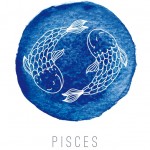Love, romance, affection, desire, infatuation, liking – there is no dearth of words in the English language, for that matter, in any language, to capture the different intensities and gradations of feelings we experience. However, when we attempt to distinguish and define, these very same words appear to defy precise physical phenomena-like definitions. Philosophers and intellectuals have long grappled with this.
As humans, we have a natural tendency of forming bonds with one another through our societal interactions. These interactions sometimes go beyond what would be called a platonic relationship, making way for a romantic one. The initial stages of a romantic relationship often emphasizes on emotions of love, appreciation, intimacy, and compassion, rather than phycial intimacy, although physical intimacy too is important for a relationship to thrive.
Love, on the other hand, can range from simple affection, to pleasure, to infatuation, to strong attraction and attachment to another. But if conditions are put on one’s love, this beautiful feeling is reduced to a mere agreement between two people.
“Love is by definition an unmerited gift; being loved without meriting it is the very proof of real love. If a woman tells me: I love you because you’re intelligent, because you’re decent, because you buy me gifts, because you don’t chase women, because you do the dishes, then I’m disappointed; such love seems a rather self-interested business. How much finer it is to hear: I’m crazy about you even though you’re neither intelligent nor decent, even though you’re a liar, an egotist, a bastard.” – Milan Kundera in Slowness.
Kundera makes no bones about his intention (“Love is by definition…”), and manages to convey two things beautifully – that love is both with reference to an object and it is independent of the qualities and idiosyncrasies of the object. A classical example of true love is the love that a mother has for her child. Anyone who doesn’t love himself, flaws and warts included, will not be able to love others. Contrasted with love, romance is more inward looking, and is related to one’s character.
Often, we get carried away by the definitions that movies and media subtly convey, so we end up confusing being romantic with being in love. One makes the other possible. Romance is a trait of one’s character. Being romantic is being able to appreciate the little joys of life and having a spirit that is adventurous and open to new experiences. Seeing the sun set on the way back from work, seeing a dog play with a kid, admiring the first rain of the season, hearing a bird sing early in the morning, giving a warm hug to a close friend – these are things that excite people with a romantic spirit. This excitable nature and openness equips them with a positive outlook on life and they relate to people more freely. A person who is able to appreciate romance is more likely to give himself freely, give his partner the space she is entitled to, and keep the spark alive in a relationship.
Romance, in short, is an attractively charming trait. A romantic person is able to love without the usual trappings of love; his love liberates him and his partner. It creates space for new possibilities to emerge. It removes boredom and infuses energy. Romantic people are always busy, eager and curious.
Many people today look for similar interests and compatibility in their prospective life partner. Perhaps, they should also look for signs of a thriving romantic spirit! Loving a romantic person would truly be an adventurous journey, a flame that would shine eternally.















